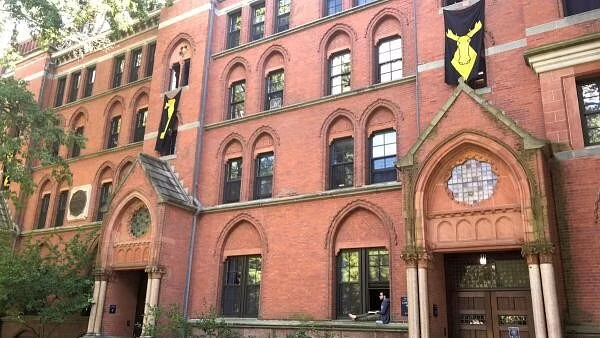Yale University, a US-based international educational institution, recently issued an apology for its historical connection to slavery. This connection was highlighted in a book titled ‘Yale and Slavery: A History’, which mentions Elihu Yale (1649-1721), after whom the University is named.
Elihu Yale, born to a rich merchant family in 1649, became a clerk for the East India Company at the age of 21. He was later stationed in India as a writer, a term used by the Company for its junior-most employees¹. Yale served as the governor-president of Madras from 1684-85, and again from 1687-92.
During his tenure, many people in South India were enslaved to carry out the routine operations of the company. A devastating famine led to an uptick in the local slave trade, and Yale and other company officials took advantage of the labor surplus, buying hundreds of slaves and shipping them to the English colony on Saint Helena.
The book, authored by Yale history professor David W Blight, stresses on many factors highlighting the fortune earned by Elihu Yale. It states that “some portion of Yale’s considerable fortune, amassed while British governor-president in Madras, derived from his myriad entanglements with the purchase and sale of human beings”.
In its statement, Yale University recognized its historical role in and associations with slavery, and apologized for the ways that Yale’s leaders, over the course of its early history, participated in slavery.
Source: Conversation with Bing
Yale University named after corrupt East India governor ‘apologises ….
https://www.deccanherald.com/world/named-after-east-india-governor-elihu-yale-elite-us-university-apologises-for-slave-trade-in-india-under-british-rule-2903524.



![[HPI] Soon Pilgrims Will Be Able to Reach Vaishno Devi Temple In Six Minutes](https://hinduvishwa.org/wp-content/uploads/2024/03/Vaishnodevi-rope-way-693x468-1-75x75.jpg)
![[ India Today ] Ohio senator JD Vance thanks wife, a Hindu, for helping him find Christian faith](https://hinduvishwa.org/wp-content/uploads/2024/06/us-senator-jd-vance-reveals-how-his-hindu-wife-usha-helped-him-find-his-christian-faith-image-re-272530504-16x9_0-120x86.webp)










